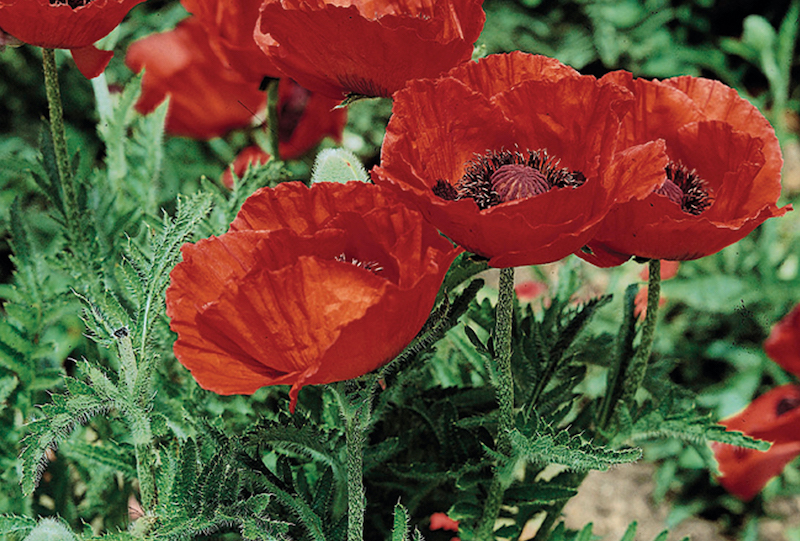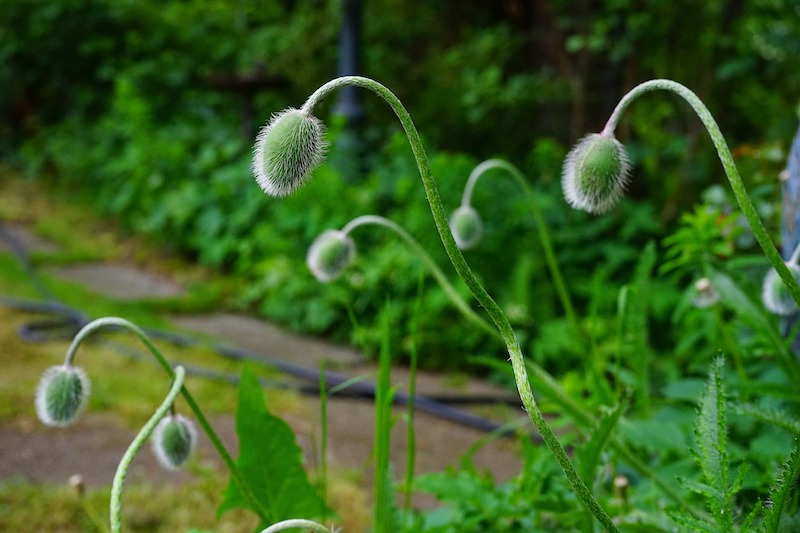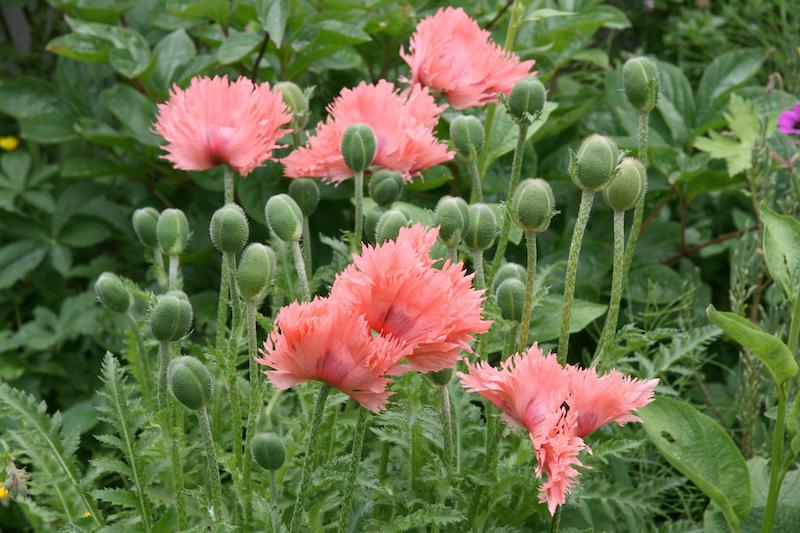Poppies are prolific bloomers during their short season in early summer. Few things affect their blooming capacity. The most common problems are too much water, not enough sunlight, over-fertilizing, hot weather and recent transplanting. Perennial and annual Poppies all bloom during the cooler months of the late spring and early summer and then go dormant in summer, as later-blooming perennials are starting to hit their stride.

Common Reasons Why Poppies Are Not Blooming
Poppies need full sun and low fertility to be their happiest and healthiest. If their location in the garden has become shadier over time from trees or other shrub growth, this will dramatically change the blooming capacity. Poppies need 6-8 hours of direct sun for flower buds to develop. Shading for a couple hours early in the day or late in the day may be acceptable as long as full sun is achieved during the middle of the day. Poppies do not respond well to fertilizing, preferring to have a lean soil. Fertilizer will often spur excess foliage growth that is weak and subject to pest and disease damage.
Perennial Poppies may respond to a bulb fertilizer that is higher in phosphorus early in the spring. Do not use fertilizers high in nitrogen or 10-10-10 NPK feeds. Excess watering or a rainy spring will delay blooming in most Poppies. Rainy days are typically overcast with little sun. Make sure that the drainage in the garden is excellent. When the heat of summer sets in, Poppies react by preparing to go dormant. The flowers will die back and set seed, followed by die-back of the stems and foliage. This is part of the plant's normal life cycle and cannot be altered.

Pruning Poppies To Help Them Bloom
Annual and perennial Poppies need regular deadheading to prolong their short blooming period. As soon as the petals fall off flowers, it is time to cut back the whole stem to the basal leaves. Poppies tend to set seed fast and will stop putting energy into flowering if there are seed pods forming.
Fertilizing Poppies To Help It Bloom
Annual Poppies do not tolerate fertilizer well. Feeding tends to increase foliage growth at the expense of flowering. Perennial Poppies may bloom better if given a slow-release fertilizer early in the spring, as their new growth emerges. Use a formulation that has a higher phosphorus (P) content. This will encourage heavier blooming.
Get Poppies To Produce More Blooms
Poppies may have a hard time blooming if they were transplanted or divided the previous year. Disrupting the taproots of Poppies often triggers transplant shock that slows flowering for a year or more afterward. WIth proper support, the blooms should reappear 1-2 years after dividing and transplanting.

Why Poppy Isn’t Blooming
- Not enough sun
- Too much rain in the spring
- Need to deadhead on a regular basis to keep seed pods from forming
- Too much nitrogen
- Poppies go dormant in the summer
 |
Author Robbin Small - Published 7-26-2022 |
